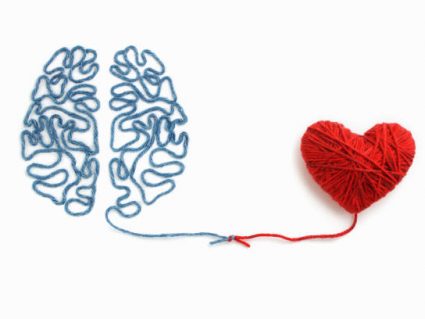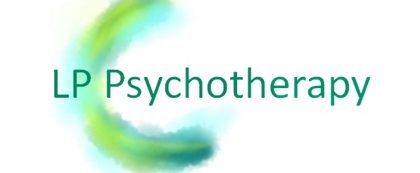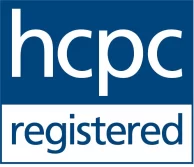Information about the Therapy Approach
About the therapy approach
With there being so many different therapy approaches and so many therapists and counsellors claiming to work with a vast array of issues, it can be really confusing understanding which approach is right for you. Below is some information about my therapy approach to help make sense of what it is and how it works to help see if they are right for you
I use an integrative approach, combining Art Therapy and EMDR with trauma-informed and anti-oppressive models of therapy. Both Art Therapy and EMDR are what is known as bottom-up approaches of therapy.
Bottom up therapy approaches focus on addressing where the root problem is stored rather than just on the symptoms of the issue or gaining cognitive insight, and, are the approaches that are recommended and evidence based for when working with trauma.
When under a great deal of stress and overwhelmed, certain areas of the brain shut down to some degree or completely so that all the focus is on managing as best they can in the moment. Some or all information can get stuck in the raw feeling parts of the brain and then create issues in daily life such as emotional overwhelm, being stuck feeling on edge, sleep issues, nightmares, unhelpful patterns, disconnect from yourself, emotions, or the world, flashbacks, intellectualising, and so on. In order to address both the root cause and symptoms fully, therapy need to activate the brain regions where the information is stuck.
Bottom up therapies first address distress from sensations, memories, the nervous system, emotions, beliefs, and patterns, creating a felt sense of safety first to help a person feel grounded enough for deeper processing. These approaches then use various methods to access what is stuck and activate the needed regions of the brain to allow what is stuck to move and transform. Working in this way can allow for deeper processing of difficult experiences, emotions, beliefs, body sensations, and patterns that are no longer helpful for you.
Bottom up approaches can help you gain a much deeper understanding of what you find is affecting you to help better understand how to manage and resolve any difficulties you are facing. To read more about bottom-up therapy approaches, please click here.


Art therapy
Art therapy is primarily a psychodynamic approach, meaning that the focus is on how early experiences can impact on our behaviours, thoughts, and feelings in the present.
There is no need to any "good" at art as the focus is on the process of creative making and never will never eb an expectation for a person to make art in every session. The process of making art is what helps a person access more of their past stuff and create connections. The creative process helps activate the regions of the brain where the stuff is stuck and so it's really there to help open the necessary channels needed to move forward rather than about artistic skill. The art serves as a bridge between what if felt and what is thought.
Creating art in therapy has other benefits too in that it can be a way to give form to past or present experiences that are otherwise difficult to communicate word alone. It can help provide other perspectives way to look at what's happened to gain new insights. The process of making art can create the enough distance to support someone to look to express complex emotions, to process trauma, and think about how to unpick what is heavy so that they have improve wellbeing.
Art therapy is a legally protected title in the UK, requiring a certain level of training and for the therapist to be registered with the Health and Care Professions Council (HCPC). My HCPC registration number is AS15955. To find out more about art therapy, please visit the British Association of Art Therapists website.
EMDR
EMDR, or Eye Movement Desensitisation and Reprocessing, is a specialised form of psychotherapy designed to support processing of difficult experiences and issues. Originally developed to support people with PTSD, EMDR is now used for many different types of difficulties and is recommended for processing traumatic memories.
During processing sessions, the EMDR therapist uses bilateral stimulation of moving left to right through eye movements, physical tapping, or listening to sounds. This movement keeps the all parts of the brain online and allows for memories to be fully processed. In this way, EMDR aims to remove the emotional charge of the memory and stop it from causing distress in the present.
EMDR requires specific training and specialist skills to deliver it safely. I have completed my EMDR training with Richman EMDR Training and am registered with the EMDR Association UK. To find out more about EMDR, please visit the EMDR Association UK and Ireland website.


The Trauma-Informed Approach in Therapy
A trauma-informed approach is informed by psychology, neuroscience, attachment, and trauma theories. The trauma-informed model steps away from labelling people as problems and instead looks to understand how current distress and mental health issues are adaptions to what has happened in their lives.
This approaches involves understanding and working with these adaptions and working with the nervous system to create a felt sense of safety to facilitate the change a person wants. It aims to support a person to gain a better understanding of what is interfering with daily life and discover new ways of dealing with this.
I use Judith Herman's 3 phases model which starts with stabilising any difficulties (e.g. anxiety, flashbacks, panic attacks, depression, sleep issues, etc.) by building up emotional regulation strategies and creating a felt level of safety. The focus then moves to processing root cause of any issues and supporting a person to take care of their needs, environment, and relationships.
To find out more about trauma informed practice, please click here to visit for more information about the Power Threat Meaning Framework or the Scottish Government website
Getting started
I offer a free 20-minute phone or zoom consultation appointment to see if they are the right therapist to support you.
I aim to respond within two working days where possible and will check the practicalities work for you first.
I will then offer a day or so following a consultation for you to reflect on whether it feels like a good fit, and if you wish to go ahead, send out the documents to get started.
What to expect
If you would like to start working together, your first few appointments
are used to gain an understanding of what has had happened in the past and the issues you wish to address. Together you would then decide on how best way to support you with this.
To give some ideas of what sessions may look like in practice, therapy sessions may focus on things such as:
• creating and practising coping strategies
• building a greater understanding of issues
• reflective conversations on your thoughts, feelings, and life experiences
• goal setting and action planning
• working with protective mechanisms or processing experiences to create change
You are the expert
Everybody’s experiences and difficulties are unique and therefore so is the pace and length of the therapy.
I feel that each of their client's is the expert in their own life and experiences and so they are best placed to decide what is right for then. i may offer suggestions of ideas for focus or strategies to practice, but it is always the your choice as to what you wish to focus on and how you wish to do so.
Lizzy Pittock is an inclusive practitioner and welcomes people of all ages from all communities, ethnicities, LGBTQIA+, and people with disabilities.
©2022 Elizabeth Pittock
powered by WebHealer


